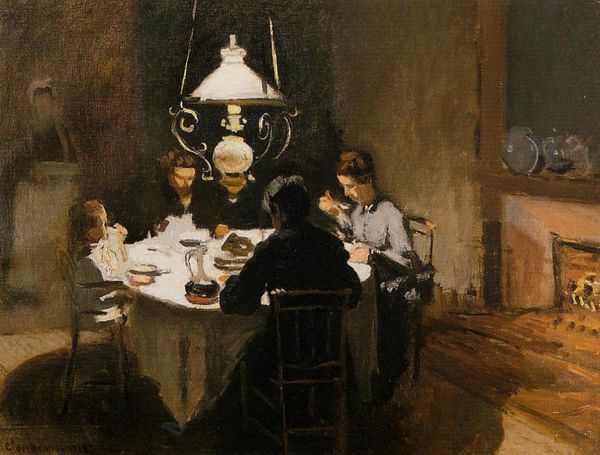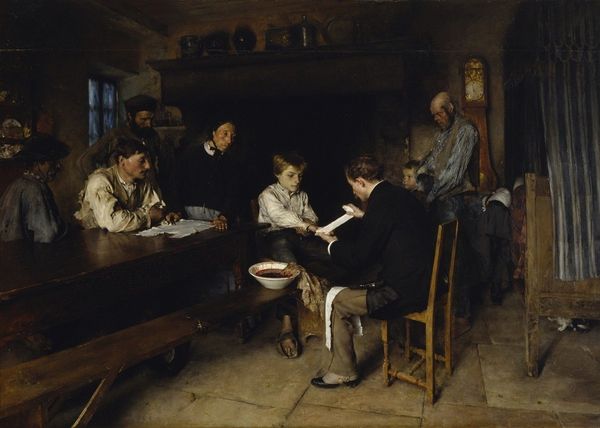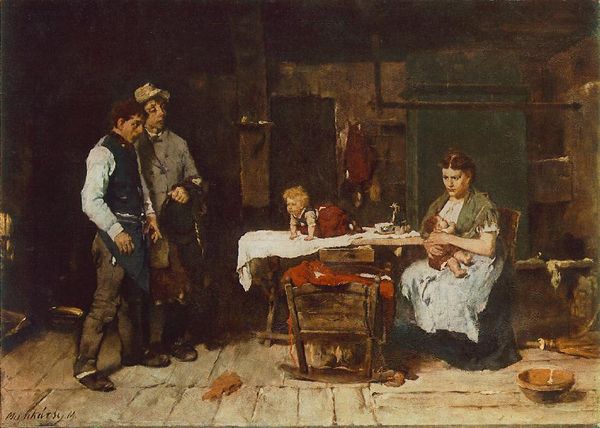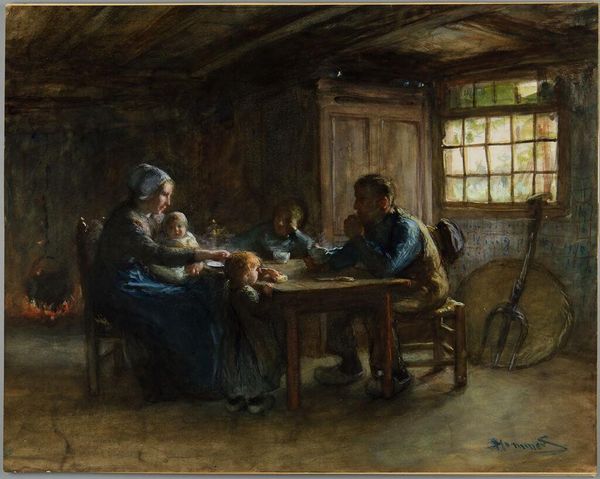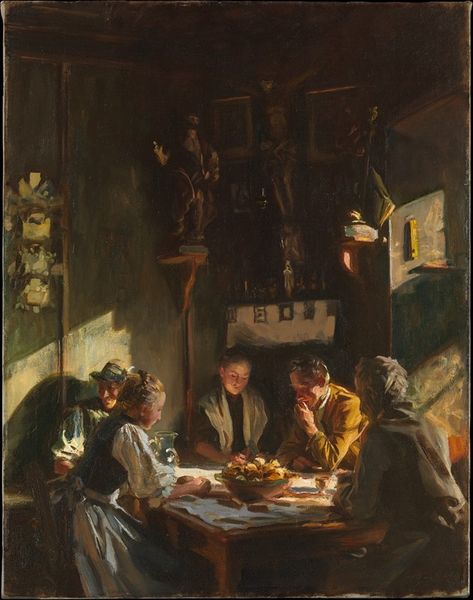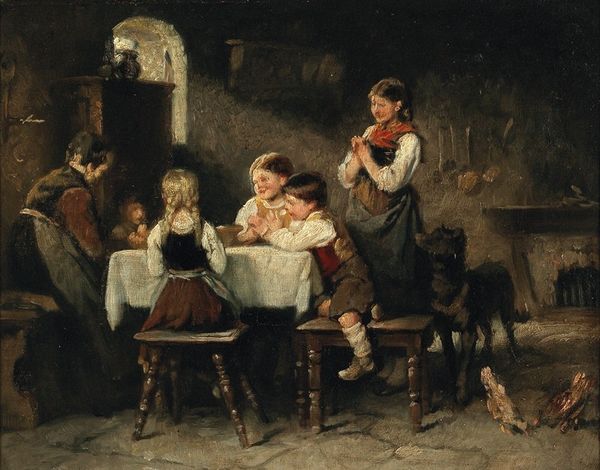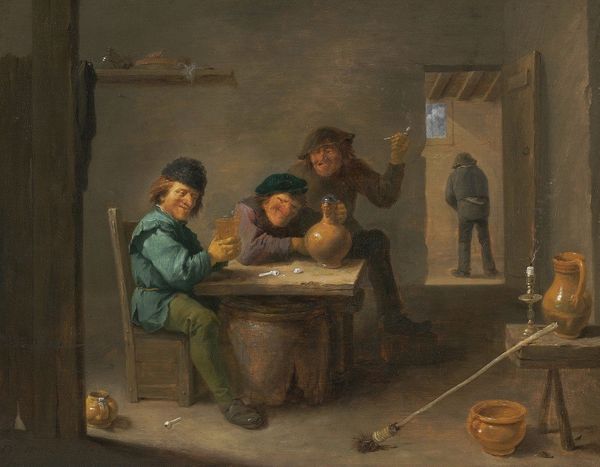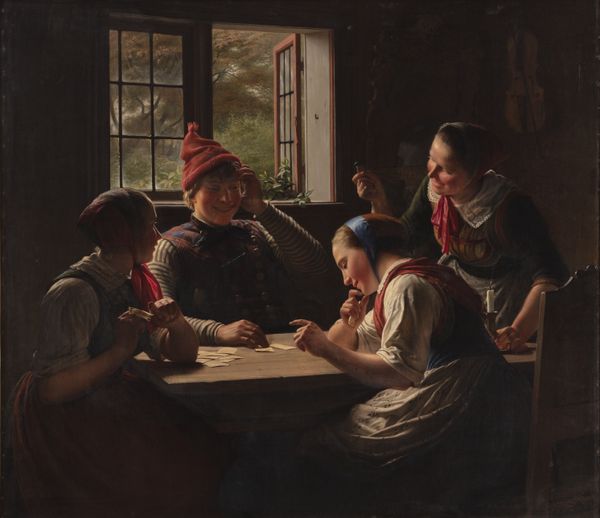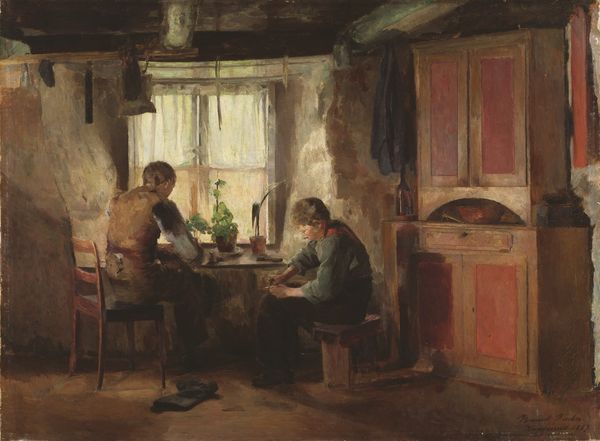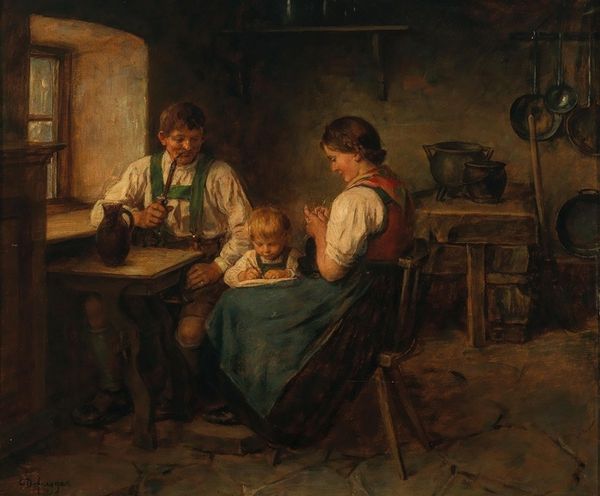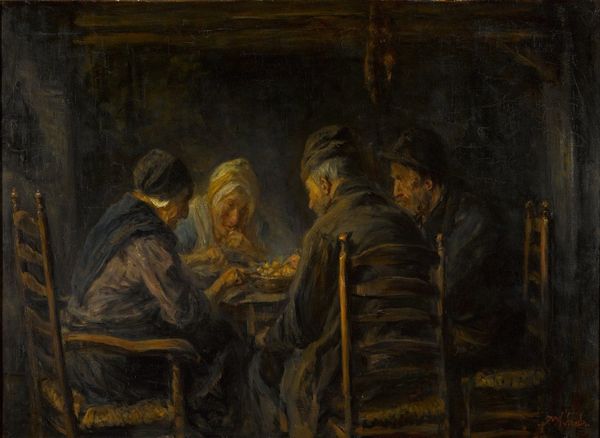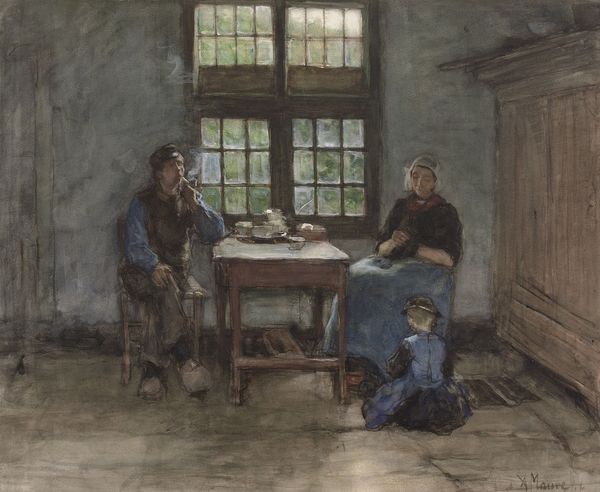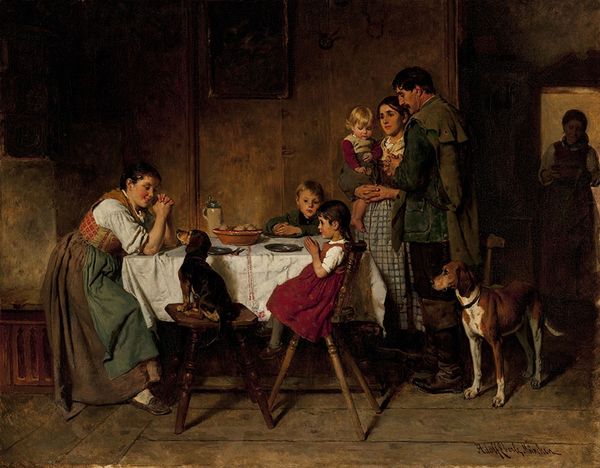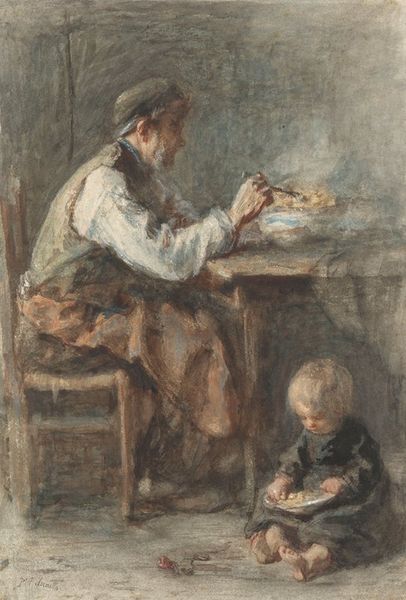
#
gouache
#
figurative
#
charcoal drawing
#
possibly oil pastel
#
charcoal art
#
oil painting
#
underpainting
#
painting painterly
#
watercolour illustration
#
charcoal
#
watercolor
Copyright: Public Domain: Artvee
Jozef Israëls probably painted this scene of a peasant family at the table in the Netherlands sometime in the mid-to-late nineteenth century. Its somber tones and humble subject matter invite reflection on the hardships of rural life. The image creates meaning through several visual codes. The dim lighting and sparse furnishings emphasize the family's poverty, while their quiet demeanor suggests a life of hard work and simple pleasures. The painting evokes a sense of intimacy, drawing the viewer into the family's private world. This genre scene reflects the cultural context of the time, when there was growing interest in depicting the lives of ordinary people. Israëls, as part of the Hague School, was committed to representing the lives of the working classes with sympathy and realism. The painting may also be read as a commentary on the social structures of the time, highlighting the economic inequalities that existed between the wealthy and the poor. To better understand Israëls’ motivations for creating this artwork, we could consult the historical record, including exhibition reviews, biographies, and letters. This will help us better understand the painting’s meaning and significance as contingent on its social and institutional context.
Comments
No comments
Be the first to comment and join the conversation on the ultimate creative platform.
